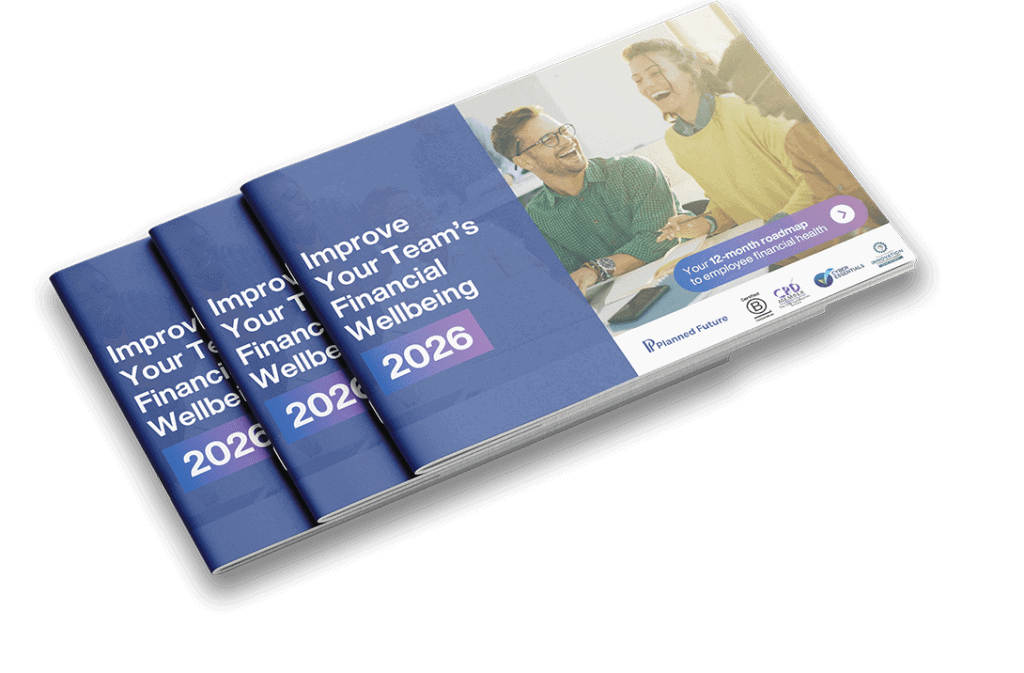Having limited financial education or even financial illiteracy can be detrimental to an individual’s wellbeing.
Financial literacy is a cornerstone of personal empowerment, yet it remains an overlooked and underestimated skill for many individuals. From not being taught in schools, to parents unable to filter down financial education, the repercussions of financial illiteracy can be damaging. They extend beyond immediate consequences and can even shape the trajectory of an individual’s life.
This blog outlines the long-term impact of being financially uneducated. Shedding light on the ways individuals may make poor money choices due to a lack of understanding about their finances.
Planned Future’s webinars and seminars are produced by Certified Financial Planners and offer insightful financial and mental wellbeing education. This means attendees can get a clearer understanding of their money and make better choices. Learn more about our initiatives here.

Debt accumulation or mismanagement
One of the most common consequences of financial illiteracy is the accumulation of debt.
Without a solid understanding of interest rates, credit scores, and responsible borrowing, individuals may find themselves drowning in a sea of debt.
High-interest credit cards, payday loans, and other forms of unmanageable debt can cripple financial stability and haunt individuals for years.
For example, data from The Money Charity showed the average credit card debt per household is £2,315. A credit card on the average interest rate would take 26 years to repay when making only the legal minimum repayments each month.
The minimum repayment on the average credit card debt is £63 per month but this would reduce each month. If £63 was paid every month, the debt would be cleared in 5 years.
Inadequate retirement planning
Many people fail to grasp the importance of early retirement planning. The consequences of this oversight become glaring in the long run.
Without a comprehensive understanding of investment options, compound interest, and the power of consistent savings, individuals risk reaching retirement age with insufficient funds to sustain their lifestyle. This leaves individuals dependent on state pension or struggling to make ends meet during their retirement years.
Missed investment or saving opportunities
Financial illiteracy often leads to missed investment opportunities.
Whether it’s a lack of understanding of investment funds, property or pensions, individuals may shy away from potentially lucrative opportunities. This not only hinders wealth creation but also limits avenues for financial growth and stability.
Impulse spending and lack of budgeting
A lack of financial education can result in poor money management habits. This includes impulse spending and the absence of a budget.
Without a clear understanding of needs versus wants and the importance of saving, individuals may find themselves living payday to payday, unable to build a financial safety net for unforeseen circumstances.
Try to aim for at least 3 months net income put away in savings.
Slowed career growth
Financial illiteracy can have professional ramifications as well. Without a solid grasp of negotiation skills, investment in career development, and understanding the long-term financial implications of career choices, individuals may miss opportunities for salary advancement, career growth, and overall financial prosperity.
Increased vulnerability in tough financial times
Financially uneducated individuals may struggle to navigate economic challenges effectively.
Whether it’s a recession, job loss, or unexpected expenses, those with little financial education may find themselves ill-prepared to weather financial storms. This vulnerability can lead to increased stress, strained relationships, and a prolonged recovery period.
Summary of financial illiteracy
In a world where financial decisions have lasting implications, the importance of financial literacy should not be overstated. The long-term impacts of being financially uneducated are far-reaching, affecting not only an individual’s economic well-being but also overall quality of life.
To break the cycle of poor money choices, it is imperative for individuals to invest in their financial education, seeking resources, courses, and professional advice to empower themselves with the knowledge needed to make informed and strategic financial decisions.
Only through a commitment to financial literacy can individuals pave the way for a secure and prosperous future.
Everything in this blog post is intended as information and guidance only and should not be taken as formal financial advice. If you require formal financial advice speak to a financial adviser regulated by the Financial Conduct Authority

